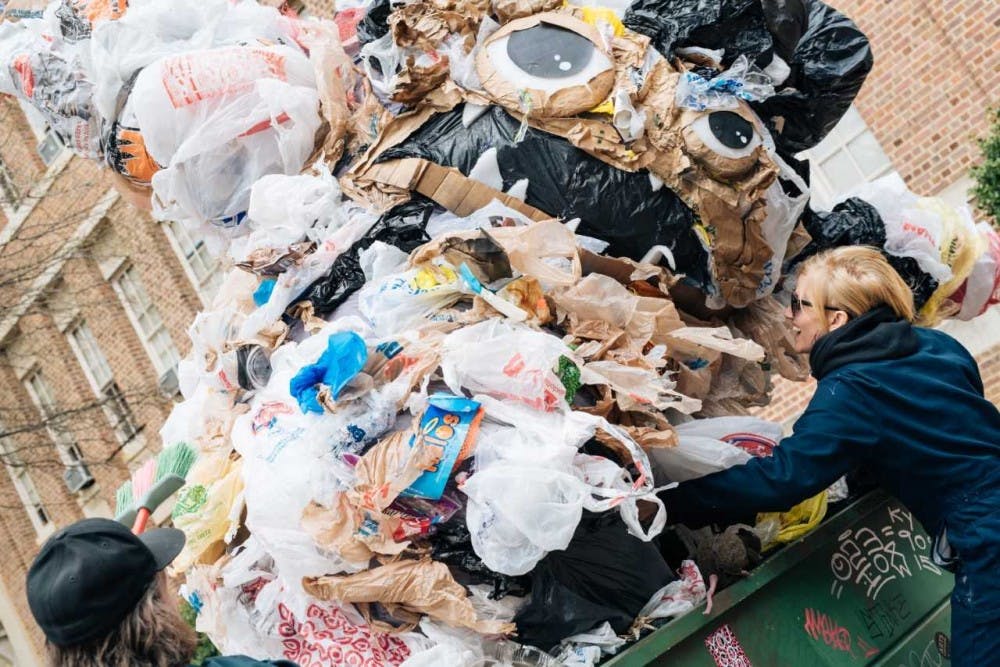Get ready to get your Plasticon on. Carolina Performing Arts will be hosting the Plasticon festival this Saturday, April 21 from 1 p.m. to 5 p.m. in order to raise awareness about the environmental impacts of plastic bags.
Staff writer Krupa Kaneria talked to Alexandra Ripp, a post-doctoral fellow who oversees the DisTIL fellowship program, about the festival, the art that will be featured during Plasticon and the importance of sustainability.
The Daily Tar Heel: What is your role at CURRENT ArtSpace + Studio?
Alexandra Ripp: CURRENT is a new space that is a part of Carolina Performing Arts. In addition to having performances at Memorial Hall or Hill Hall, now we have this new space. We are using it to program work that is more participatory and immersive, and in that way, different than some of the more traditional performances that you might see at a more traditional venue like Memorial Hall.
I have been working at Carolina Performing Arts in general as a post-doctoral fellow, and my job has been to oversee this program called DisTIL, which is an Andrew W. Mellon Foundation grant-funded program, for over four years. We bring four artists, and they come to campus for multiple semesters — two to three years in total, on and off — to work with faculty at UNC on collaborative research. So, it’s about bridging the arts and the academy.
DTH: How did the Plasticon festival start?
AR: Robin Frohardt is one of our artists. She is a visual artist, a puppet maker and a theater director, and all of her work right now is focusing on plastic. She is going to open up an installation storefront in the fall called the Plastic Bag Store. Everything in the store is going to look like it would in a regular grocery store, but everything in it is made out of plastic bags. It’s commenting on the absurdity of how much plastic we use — our crazy consumption and the fact that it’s never going to go away.
Plasticon is the end of Robin’s DisTIL fellowship, and she has worked primarily with a public health professor and two archeologists on campus. She has inspired a lot of work at UNC, and we wanted to have a day where all of the people who are interested in sustainability and art could come together and harness the energy that she has stirred up over the last year. This is the first Plasticon, and I am kind of helping produce it, and the Carolina Performing Arts staff has also been working really hard — as if it were a performance.
DTH: Why are you passionate about recyclable art and this project?



